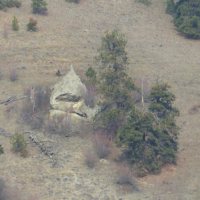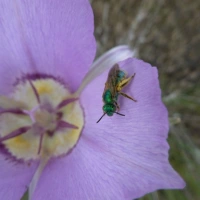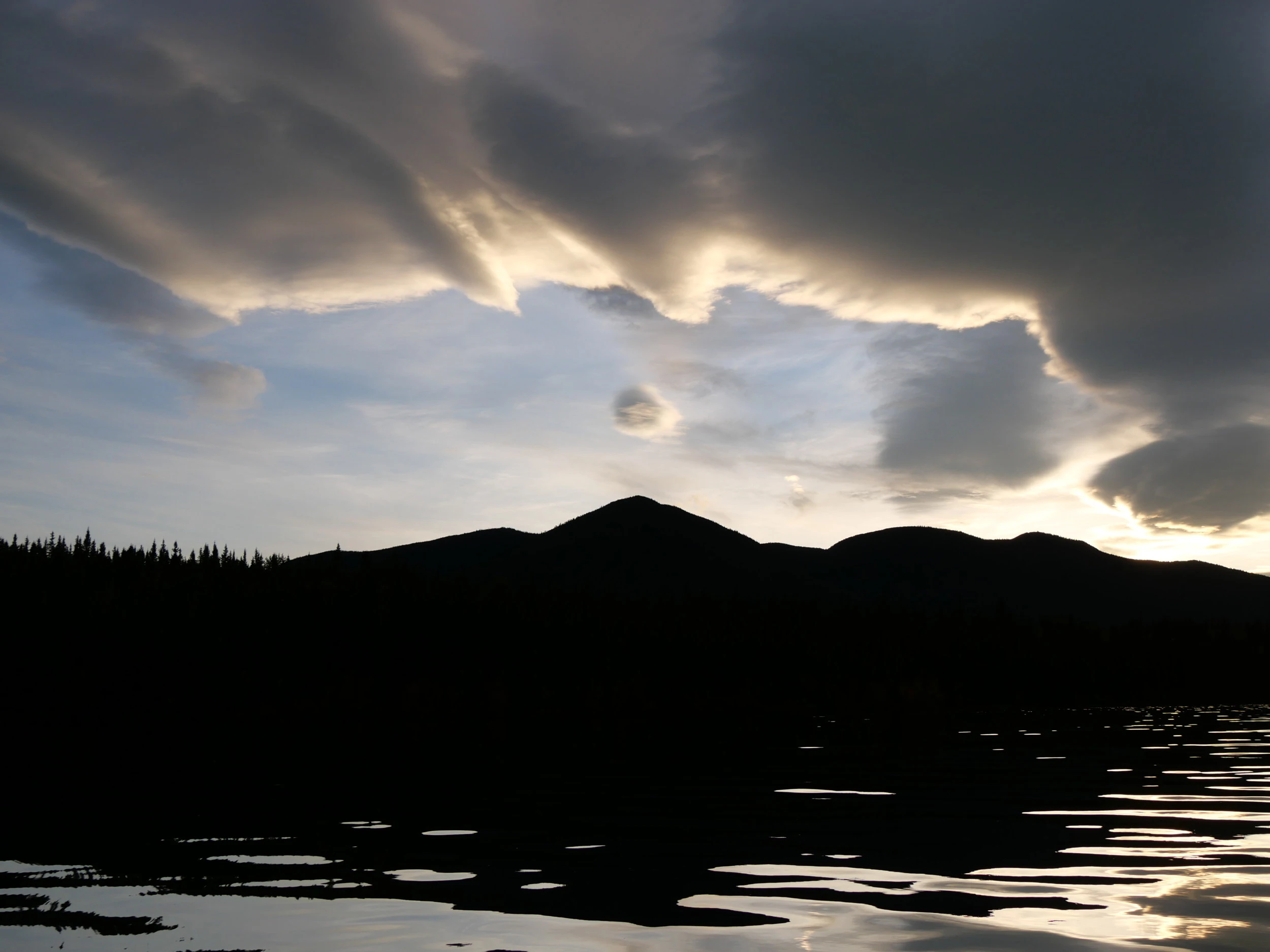Two important issues are getting airtime on CBC Radio these days. For those of you who don’t know Canada, the CBC (the Canadian Broadcasting Corporation) represents the federal and royal governments of the country, by promoting the concept of federal unity and deference, through programs on arts, culture, news, politics, sports, music, traffic reports, comedy and global pop culture. Yesterday and today I caught it on the radio, and I learned that Sally Armstrong is saying the human kind may well go extinct if power is not given to women, and that Ibram X Kendi, an American author, is saying that human kind may well go extinct if all people don’t actively address racism, and that failure to do so is racism. Fair enough on both counts, but let’s not get so tangled up in ourselves that we forget a couple of important issues. First, this:
This is Big Bar Lake at dawn in September. Notice that the sun has turned to specks of silver, or fish scales, on the lake. Look what the wind does with that, in this image taken a couple of minutes later:

They’re all aligned now. That’s a powerful transformation. It has meaning. And look what the sedges did with that ten minutes before the first image:

Notice how there is a language here.
Not a human one.
Notice as well how big even this small lake is:

Notice how small the human is, floating in a little boat on the lake’s body (5 square kilometres, no more). It is very fine to imagine that the problems afflicting humankind, which include predatory brutality and violence against each other (a whole kaleidoscope of awfulness), but also the collapse of most of the world’s ecosystems, could be solved by adjusting human social parameters, but there’s something missing from the equation. If we’re talking now (and it’s good that we are) about limiting the potential for life through sexism and racism (and the terrible gang-rape-as-terrorism of 30,000 Bosnian women that drives Sally Armstrong to tell her story), why are we only talking about humans? Why are we suppressing the language of the sedges? Why aren’t we including the voice of the lake above, as a person? (Not to mention, why does an American get to lecture Canadians on racism…isn’t that colonialism? Isn’t that something we want to fight as well?) Ibram X Kendi argues that the way to end racism is to begin a process he calls anti-racism: to actively combat it. Fair enough, but he could, perhaps, be advised that if he’s not actively combatting the depersonalization of the living Earth, then he’s an active agent of the negative anthropocene, and if doesn’t actively confront the colonialism in his program, he’s an active colonizer. My point is not that Armstrong or Kendi are off-the-mark. They’re right on it. Yet, there is still this:

This arrow-leafed balsam root at the end of its season can tell all of us as much about surviving in this steppe as anything we could say about human social dynamics. That we have, at least collectively, lost the language to do so, and are left only with a colonial language, English, itself an active agent of colonialism and oppression, is beside the point. The message is still there. The offering and knowledge and eruption of energy out of the earth is still there. To deny that, and to say that the threat to human kind is social, and that somehow by solving social issues the issues of the Earth will also get solved, seems hardly different than the kings, dukes and princes of Europe four hundred years ago attempting to build their economies by building their palaces. I mean, look:

Look at all the relationships here, and how they are echoed in leaf shape, both new and old. In Indigenous culture, these relationships are ancestral, and it is understood that returning to them returns people to the conversation. It keeps us from getting too hung up on ourselves. What colonialism has achieved for Canada, after all, appears to be a kind of globalism pursued by Armstrong and a very different kind by Kendi, and this:
What you see is a global collection of weeds. It’s right above this other collection of weeds:

This the Grey Canal Trail, a walking trail in Vernon, above my house. It is popular and well-used. The only native plants are those four bushes on the left, and they’re the only ones supporting life. The rest is just a global assortment of colonists looking like nature. But look what the land is telling us, even so:

These cattails are growing in a ditch along the trail, from seed blowing in the wind. And the escaped, feral orchard grass below has its own things to say, too:

Addressing sexism or racism won’t address the problems here, and won’t teach us to speak this language again, just as learning that language won’t address racism or sexism, but it will address colonialism, including the ongoing global colonialism of this woven Indigenous space.

Most people in Canada and the United States (and I dare say elsewhere, given the global reach of contemporary colonialism) don’t have any words for that, and can’t hear its conversation, but that does not mean that there is no conversation there. Armstrong’s argument for women to have more of a role in power is well-taken: without that, important issues will be overlooked. The same argument applies to the Earth. It is not ours to give her a voice, she has one:

It’s not ours to give wild lettuce or bear berry personhood. They have it. However, here I differ from Kendi, as I don’t think we’re going to solve this problem by calling out those who don’t address it. That might work for racism. I accept Kendi’s expertise on that. But the Earth is not asking for us to divide ourselves, or to unify ourselves in protest. We will not arrive at the Earth through protest. We will not arrive there through anger. Those are human emotions. We will arrive there like this:

Not through more humanity, but through otherness, through being, ourselves, other. And that’s a whole issue of the cult of the individual vs. the personhood of the Earth that all the high operatic drama of the CBC, tasked as it is with controlling top predators enough that they stay yoked to the deference to authority granted by the grace and pomp of the monarchy, won’t address. What we can protest, however, is that the CBC has the gall to attempt to do this to us, when we have an Earth to care for. In the colonial language of the Canadian government, this stuff is called “nature”. This is what it looks like, through the lens of the CBC:

That, too, is what colonialism looks like. It is unethical to continue like this.
Categories: Arts, Earth, Endangered species, Ethics, Gaia, Nature Photography














All Sir David Attenborough’s fault. He did begin his career capturing wild animals for zoos (I think)
LikeLike
Really. Hunh. The image of the depressed orang-utangs in the Chester Zoo haunts me, and the young one taking matters into his own hands and attempting to pick the lock.
>
LikeLike
Loved your blog post of November 18th Harold. Respect for the planet leads to respect for each other…planet first.
LikeLike